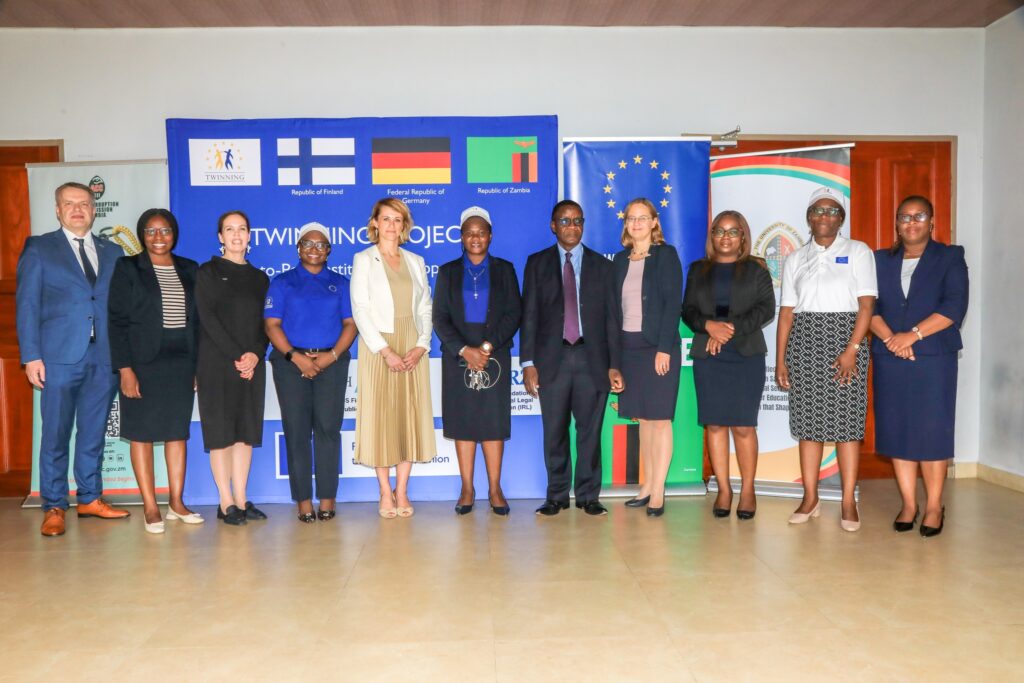EU Twinning Project Ends with Call for Ongoing Anti-Corruption Efforts
The European Union (EU) Peer-to-Peer Twinning Project with Zambia’s Anti-Corruption Commission (ACC) has officially ended. The closing event took place at the University of Zambia (UNZA) main campus and focused on the project’s success and the need for continued efforts against corruption.
The event brought together government officials, EU representatives, civil society groups, and diplomats to discuss the project’s impact on Zambia’s fight against corruption.
At the event, ACC Acting Director General Monica Chipanta Mwansa said the project helped improve how corruption cases are investigated.
“The Twinning Project has been very helpful in training our officers in digital forensics, asset tracing, and financial investigations. This will help us detect and prosecute corruption cases better,” she said.
She also mentioned that the project strengthened legal processes and improved case management, making corruption cases easier to handle. Public awareness also increased, encouraging citizens to participate in anti-corruption efforts.
EU Ambassador to Zambia and COMESA Karoline Stasiak praised Zambia for being the first African country to complete an EU Twinning Project.
“This project has shown the importance of working together internationally. Zambia has set an example by showing strong commitment to fighting corruption and improving institutions,” she said.
She also noted that Zambia’s ranking on the Corruption Perceptions Index (CPI) has improved, showing that people have more trust in anti-corruption efforts.
“Fighting corruption is not just for the government. Civil society, businesses, and citizens also have a role to play. The CPI ranking shows progress, but we must stay alert,” she added.
University of Zambia Vice-Chancellor Professor Mundia Muya said universities play an important role in promoting honesty and good leadership. He promised that UNZA would continue research, training, and discussions to support good governance.
Project Leader Jaakko Christensen shared an update on new laws being developed. “The proposal to change the Anti-Corruption Act is almost finished. This is a result of hard work and discussions with many people. The proposal, supported by the EU-funded ENACT (GIZ) project, will be presented to Parliament in March 2025,” he said.



